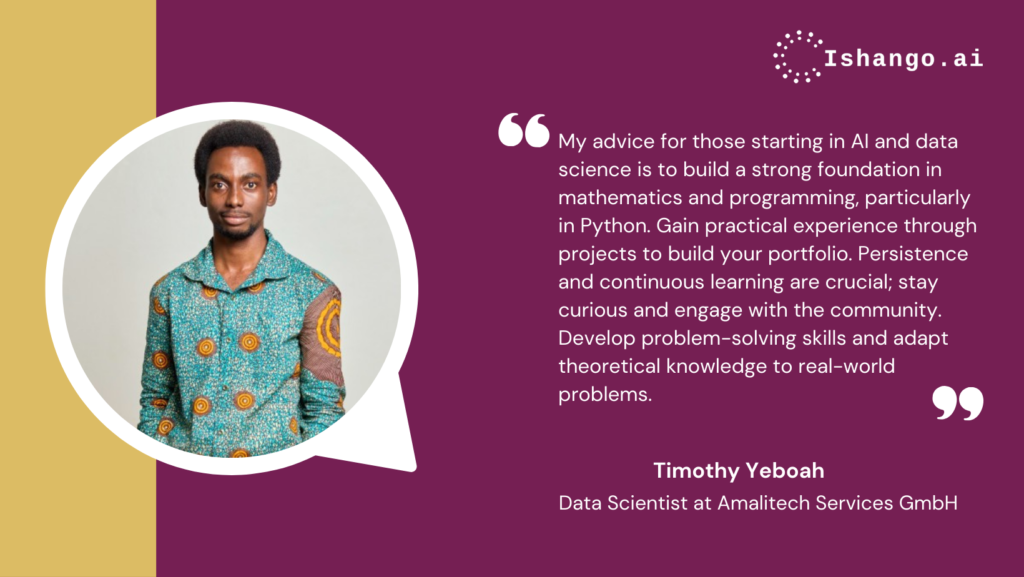Data Scientist Spotlight: Timothy Yeboah

1. Please introduce yourself, what you do, and your current role.
My name is Timothy Yeboah, a data scientist and AI developer based in Takoradi, Ghana. I work at Amalitech Services GmbH on machine learning and AI projects, including chatbots, employee recommender systems, and booking systems using Microsoft PowerApps. My expertise includes AI app development, machine learning, deep learning, computer vision, and natural language processing. I am experienced in deploying models on AWS SageMaker and proficient in Python programming.
2. Tell us about your path into data science. What inspired you to pursue a career in the field? Is this what you’ve always wanted to do?
My passion for data science began during my national service at Kwame Nkrumah University of Science and Technology, when I attended an analytics boot camp. I joined Amalitech’s graduate training programme, where I received intensive training and later worked on computer vision projects. This experience deepened my interest in AI. Recently, I have been working with large language models (LLMs) like Llama2, GPT-4, and Gemini, integrating them into workspaces to enhance productivity.
3. What are some of the biggest challenges you have faced on your career journey, and how have you overcome them?
One challenge I’ve faced was mastering various machine learning frameworks and tools, which I overcame through self-study and certification courses. Transitioning from academic to real-world projects required a practical approach, which I developed by working on diverse portfolio projects. Staying updated with fast-paced advancements in AI was challenging, but I stayed current by following industry trends, participating in hackathons, and experimenting with new technologies.
4. What advice would you give to those who are just starting out in AI and data science? What skills or qualities do you think are most important for success in this field?
My advice for those starting in AI and data science is to build a strong foundation in mathematics and programming, particularly in Python. Gain practical experience through projects to build your portfolio. Persistence and continuous learning are crucial; stay curious and engage with the community. Develop problem-solving skills and adapt theoretical knowledge to real-world problems. Embrace challenges as learning opportunities, and take gradual steps to build confidence and expertise.
